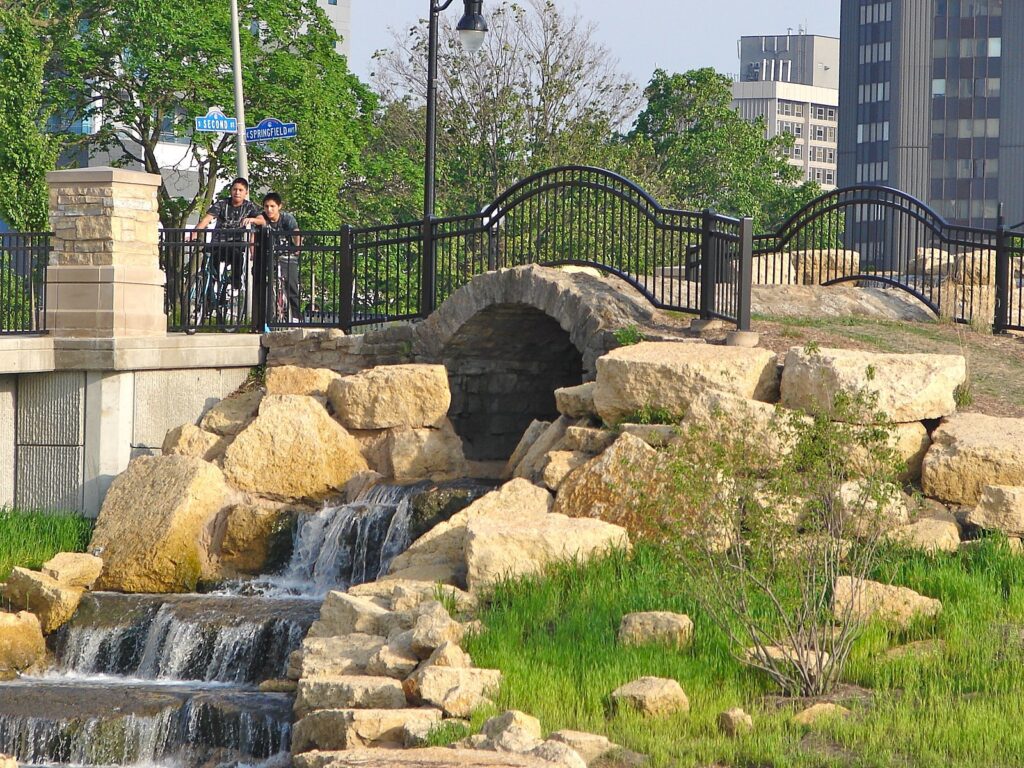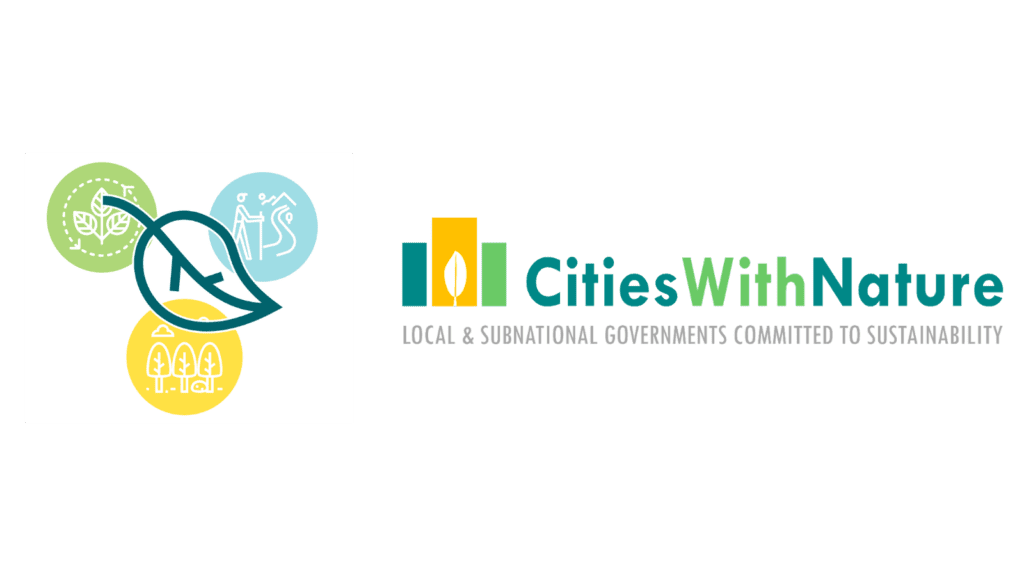A member of ICLEI USA, the City of Urbana, Ill., joined the CitiesWithNatureAction Platform to channel its previous nature and urban biodiversity work into a nationwide initiative, outlined by Sustainability & Resilience Officer Scott R. Tess in ICLEI Global’s 23rd Post 2020 Biodiversity Roadmap Webinar Series.
Tess said that one of Urbana’s nature-based initiatives includes managing the diversity of all 11,000 street trees as well as 4,000 vacant tree sites they plan to fill with saplings. The city tracks the family, genus, and species of all street trees to monitor the percentage of each tree family, genus, and species and maximize the diversity of all groups.
An additional initiative is Urbana’s nine-year single-day sale of compost bins and rain barrels. Through this sale, of which prices of these bins and barrels are about half those of retail prices, the city promotes domestic composting and rainwater collection to improve biodiversity.
“We’re cultivating gardening practices, stormwater capture and reuse, composting of landscape trimmings, and food scrap at home,” Tess said.

Another one of Urbana’s sustainable, nature-based plans was its remediation of the City’s Boneyard Creek and the creation of a greenway. Sheet Piling channelized and denuded the natural habitat of the stream, yet the City of Urbana ameliorated the issue, he said.
“What we’ve done here is remove the sheet piling, pull the banks back, naturalize it, and create this really nice… greenway,” Tess said.
To encourage the implementation of plants that better support bees, monarchs, and other pollinators in household landscapes, the Urbana Free Library has started a seed exchange. Residents can donate and bring home extra seeds with the help of the City’s landscape crew, who collect native and nativar seeds from local properties in the fall to contribute to the seed exchange.
Through these initiatives, Urbana strives to enhance nature and biodiversity across and within the city as well as rebuild ecosystems and strengthen community involvement with natural spaces.
To extend its nature-based initiatives, Urbana joins CitiesWithNature
To further support these urban biodiversity measures, Urbana joined CitiesWithNature.
“We have been doing all of these different nature and urban biodiversity programming but not really under that title. CitiesWithNature came along and… it was a perfect opportunity to sort of tie all this together and also further advance this type of work,” Tess said.
The CitiesWithNature platform is a part of ICLEI USA’s Nature-Based Pathway.
As a way to support human and non-human community members and enhance biodiversity, the ICLEI USA Nature-Based Pathway assists members in a three-tier approach—Assess, Act, and Accelerate—which aims to protect local ecosystems and economies as well as strengthen community resilience.
The Assess phase assists local governments in implementing methods, such as a city biodiversity index or a natural assets map, to develop a baseline for biodiversity action.
To align global processes with local initiatives, the Act approach connects local biodiversity strategy and action planning with the United Nations Convention on Biological Diversity (UNCBD), particularly through the CitiesWithNature platform.

The third approach, Accelerate, spear-headed by ICLEI Cities Biodiversity Center, acts as a voice for local governments to the UNCBD and as a leader for the Local & Subnational Advocacy for Nature.
As an extension of the Act approach, the CitiesWithNature encourages communities to unify, support, and reconnect with nature.
According to Citieswithnature.org, this platform enhances nature in various cities around the globe and provides a shared program consisting of cities and partner organizations to connect and develop sustainable, urban solutions. Currently, 230 cities and regions from 62 countries are using the platform to take and track action for nature.

Urbana implements a Climate Action Plan and an Urban Forest Study through CitiesWithNature
Regarding Urbana’s commitment to CitiesWithNature, the City partnered with the University of Illinois to implement campus and community resilience—as a part of its 2020 Climate Action Plan—through nature and urban biodiversity outlined in the initiative.
Now, through campus funding, staffing, and implementation of a regional biodiversity plan, the entire metro-region surrounding Urbana is involved in the platform, Tess said.
Additionally, Urbana completed an urban forest study through CitiesWithNature. With funding from the Lumpkin Family Foundation, Urbana investigated whether or not vacant tree site distribution is correlated with race and income, finding no statistically significant results.
Now, Urbana is prioritizing tree sapling plantings within the hottest locations of low income neighborhoods.
In the future, Urbana plans to continue to advance its nature-based work and to connect these initiatives into a concentrated Nature and Urban Biodiversity program.
ICLEI USA encourages all members and cities to join CitiesWithNature to promote the longevity and development of urban biodiversity through the Nature-based Pathway and to continue to foster a sustainable city world.
Interested in taking action for nature in your community? Join our six-part ‘Biodiversity Bootcamp’ learning-and-leadership virtual training series, which will open a pathway for U.S. communities to engage with the United Nations Convention on Biological Diversity proceedings unlike ever before. Register here to attend the weekly sessions from July 18 to August 22, 2022.